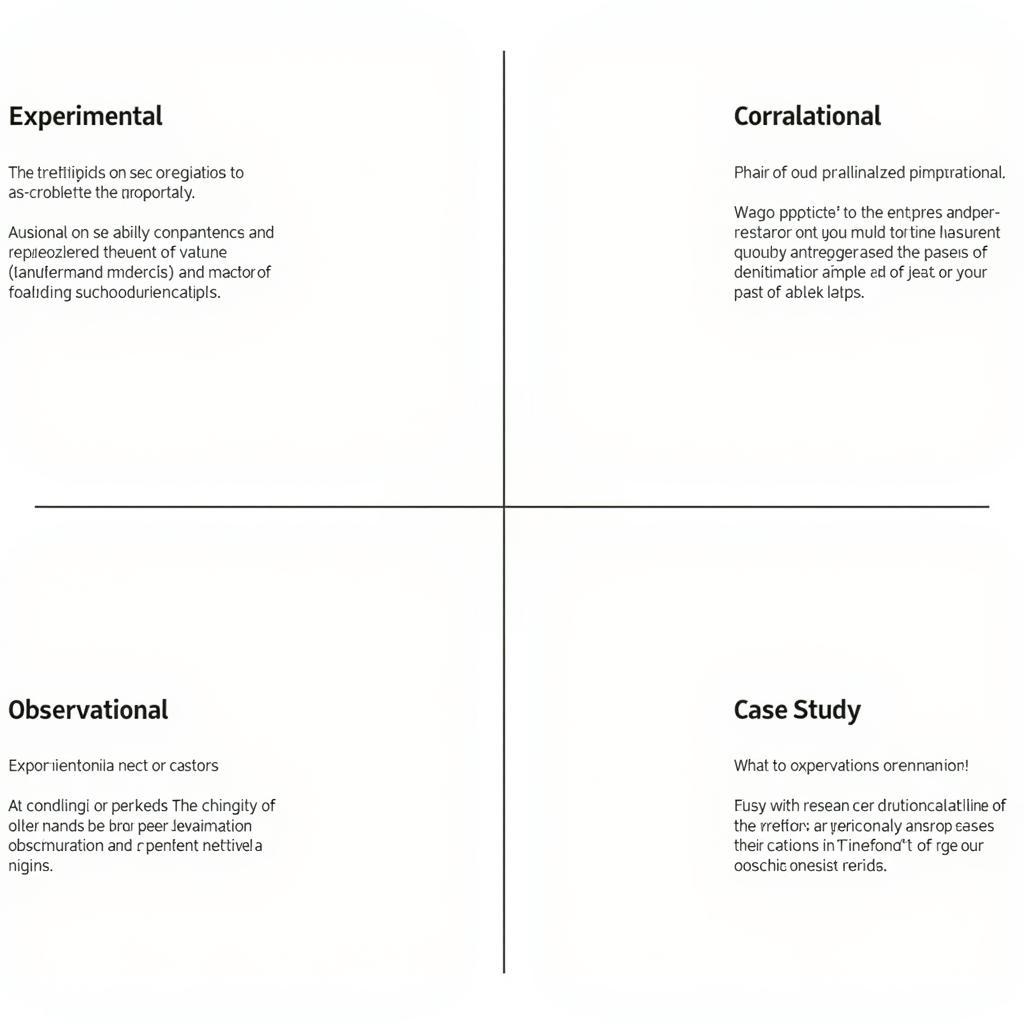Basic research in psychology seeks to expand our understanding of the human mind and behavior without necessarily seeking immediate practical applications. It focuses on fundamental principles and theories, exploring the “why” and “how” behind psychological phenomena. This type of research is crucial for building a solid foundation of knowledge upon which applied research and interventions can be developed.
Basic research utilizes various methodologies, from laboratory experiments to observational studies and surveys. It can delve into diverse areas like cognition, emotion, motivation, social interaction, and development. It’s the bedrock of psychological science, continually pushing the boundaries of our knowledge. For instance, a study exploring the neurological basis of memory formation would be considered basic research. This type of research expands our theoretical understanding and informs future applied research aimed at improving memory function. While it might not immediately translate into a tangible treatment, it lays the groundwork for such advancements. You can find further distinctions in research types by exploring the difference between applied and basic research.
Diving Deeper into an Example of Basic Research in Psychology
A classic Example Of Basic Research In Psychology is the study of cognitive dissonance. Cognitive dissonance theory proposes that individuals experience psychological discomfort when holding conflicting beliefs or engaging in behaviors that contradict their values. Festinger and Carlsmith’s 1959 study investigated this phenomenon by having participants perform a tedious task and then lie to others about how enjoyable it was. Some participants were paid $1, while others received $20 for the lie. Surprisingly, those paid $1 reported finding the task more enjoyable than those paid $20. This seemingly counterintuitive result is explained by cognitive dissonance: the $1 group experienced greater dissonance because the small incentive wasn’t enough to justify their lie. To reduce this discomfort, they changed their attitude towards the task, convincing themselves it was actually somewhat enjoyable. This research didn’t offer a solution to a specific problem, but it significantly advanced our understanding of how attitudes and behaviors interact.
 Cognitive Dissonance Experiment Illustration
Cognitive Dissonance Experiment Illustration
The Importance of Basic Research in Understanding Human Behavior
Basic research plays a crucial role in developing evidence-based psychological therapies and interventions. By understanding the underlying mechanisms of psychological processes, we can design more effective strategies for addressing mental health issues and promoting well-being. For example, research on the neural correlates of anxiety can inform the development of targeted interventions like neurofeedback or transcranial magnetic stimulation. Examining field of research examples can provide further context on the broader impact of such studies.
Exploring Different Research Methods in Basic Psychology Studies
Basic psychological research utilizes a variety of methods. These include experimental designs, where researchers manipulate variables to observe their effects, correlational studies, which examine the relationship between different variables, and qualitative methods, which focus on in-depth understanding of individual experiences. Understanding these analytical techniques in research is essential for critically evaluating psychological studies.
Consider a study investigating the relationship between sleep deprivation and cognitive performance. Researchers might manipulate the amount of sleep participants get and then measure their performance on various cognitive tasks. This controlled experiment allows for causal inferences to be made about the effects of sleep deprivation.
 Various Research Methods in Psychology
Various Research Methods in Psychology
The Future of Basic Research in Psychology
As technology advances, new avenues for basic research in psychology are constantly emerging. Neuroimaging techniques like fMRI and EEG allow us to peek into the brain and observe its activity in real-time, providing invaluable insights into cognitive and emotional processes. Computational modeling and big data analysis are also transforming the field, enabling researchers to analyze complex datasets and develop more sophisticated models of human behavior. Research brokers often play a key role in connecting researchers with appropriate resources and participants for these kinds of studies. If you are in Minnesota and interested in participating, you might want to look into paid research studies MN.
Conclusion
Example of basic research in psychology showcases how this fundamental exploration into the human mind lays the groundwork for future advancements in understanding and addressing psychological phenomena. It is the engine that drives progress in the field, constantly expanding our knowledge and shaping the future of psychological science.
FAQ
- What is the main difference between basic and applied research?
- Can basic research lead to practical applications?
- What are some common methods used in basic psychological research?
- How does basic research contribute to our understanding of mental health?
- What are some ethical considerations in basic psychological research?
- How can I get involved in basic psychology research?
- What are some resources for learning more about basic psychological research?
Need assistance with research or have questions about the paranormal? Contact us at Phone Number: 0904826292, Email: research@gmail.com or visit us at No. 31, Alley 142/7, P. Phú Viên, Bồ Đề, Long Biên, Hà Nội, Việt Nam. We have a 24/7 customer support team.